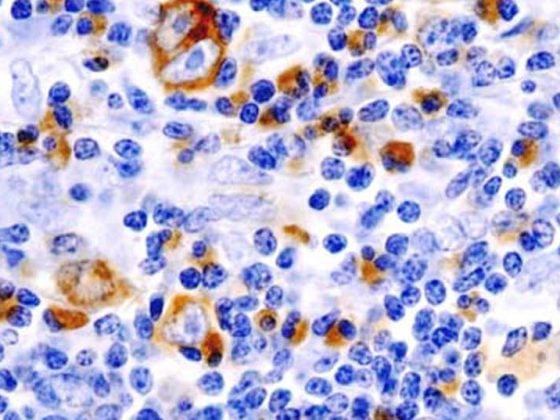Since 2004, the patient organization “GIST Group Switzerland” (www.gist.ch) has been supporting patients with gastrointestinal stromal tumors (GIST) and their families. This year’s annual meeting offered a special program for the approximately 110 guests with top-class speakers.
Since its foundation in 2004 by Dr. Ulrich Schnorf, who has since passed away, the Swiss Patient Group has built up an excellent reputation. She is very active and well connected with GIST groups around the world. On April 19, the GIST Group Switzerland celebrated its tenth anniversary in Zurich. In attendance were more than 110 GIST patients, their families, GIST experts, and interested professionals, physicians, and pharmaceutical industry representatives. They took the opportunity to learn about the latest findings on GIST and its therapies and to exchange ideas with experts. Markus Wartenberg, spokesman for the association and head of the GIST/Sarcoma division of the patient organization “Das Lebenshaus” in Germany, led through the varied and interesting day program of the anniversary event. In his “Tour d’ Horizon”, he summed up all that had been achieved in the past ten years.
GIST are rare
Gastrointestinal stromal tumors are relatively rare tumors with localization in the gastrointestinal tract. Michael Montemurro, MD (RMH London/Unispital Zurich and Medical Advisory Board of the GIST Group Switzerland), stated in his presentation that he estimates the total number of all GIST patients nationwide to be approximately 1000. One hundred patients develop GIST each year. The tumors often grow unnoticed for a long time because they cause hardly any – or quite unspecific – symptoms. Consequently, in many patients the tumor is discovered only by chance, for example in the course of imaging clarification of other diseases. Accordingly, it is not uncommon for GIST to be advanced or metastatic by the time it is discovered [1].
Until ten years ago, not much could be offered to GIST patients: The only option was early-stage surgical intervention. Prof. Piotr Rutkowski, MD, Warsaw, spoke about the current role of surgery in GIST treatment. He presented different approaches to surgical intervention.
Today, drug therapies are also available, as Prof. Dr. med. Heikki Joensuu of Helsinki University Hospitalin Finland explained. The best known is the “first in class” drug imatinib. Imatinib revolutionized cancer treatment as the first representative of a new therapeutic principle, since for the first time a targeted therapy was available by inhibiting tyrosine kinases, which are important for tumor growth. This was followed a few years later by sunitinib.
But despite tremendous advances in treatment options, GIST remains a serious cancer that stays with the patient for life. Dealing with the GIST diagnosis and its psychological processing must be done on a very individual level, as Prof. Dr. Alexander Kiss, psychooncologist from the University Hospital Basel, made clear in his lecture.
red.
Literature:
- Montemurro M, et al: Switzerland Med Forum 2008; 30-31: 544-549.
InFo Oncology & Hematology 2013; 1(1): 1











